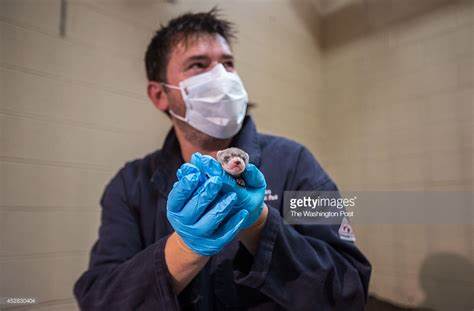- Paul Marinari’s extensive background in wildlife conservation and his significant contributions to the recovery of the black-footed ferret.
- The role and mission of Prairie Wildlife Research in preserving prairie ecosystems and species.
- The history, challenges, and successes associated with the conservation of the black-footed ferret.
- Interdisciplinary approaches in conservation involving reproductive biology, genetics, and habitat management.
- The importance of collaborative efforts in wildlife conservation for long-term ecological health and stability.
The announcement of Paul Marinari as the guest speaker at the Party for the Planet event underlines a significant opportunity to explore wildlife conservation through his expertise and contributions. Marinari’s talk, "Black-footed Ferret: The Road to Recovery," promises to deliver profound insights into one of North America’s most remarkable conservation success stories. His extensive career and active role in prairie wildlife preservation mark him as an authoritative voice in this field.
Paul Marinari holds an illustrious track record in wildlife conservation, particularly with black-footed ferret recovery initiatives. Serving in various capacities with organizations such as the U.S. Fish and Wildlife Service and the National Zoo and Conservation Biology Institute, Marinari has built a career around ecological restoration and animal preservation. His tenure as the on-site Director at the National Black-Footed Ferret Conservation Center from 1996 to 2012 was pivotal. He successfully linked breeding programs with reintroduction efforts, showcasing the tangible benefits of interdisciplinary collaboration.
Marinari’s educational background further underscores his authority in this field. With a Bachelor of Arts in biology and anthropology from the University of Delaware, coupled with a Master of Science in zoology and physiology from the University of Wyoming, his academic pursuits have fortified his practical work. This combination of education and practical experience has driven impactful research in genetics, reproductive biology, and species management strategies vital for black-footed ferret conservation.
Prairie Wildlife Research, where Marinari serves as a board member, is dedicated to preserving prairie species, with a particular focus on the black-footed ferret and prairie dogs. As a non-profit organization committed to ecological balance, Prairie Wildlife Research actively engages in the science and politics of conservation. Their efforts extend beyond species-specific programs, impacting broader ecological practices and policies. This mission aligns with global environmental health initiatives by emphasizing the interconnectedness of species within their habitats.
The black-footed ferret conservation saga is emblematic of broader species recovery endeavors. Once believed extinct, these ferrets were rediscovered in the wild in 1981, leading to twenty-first-century conservation and reintroduction measures. A combination of habitat management, captive breeding, and public awareness campaigns has played a crucial role in preventing the species’ extinction. However, challenges, notably habitat destruction and disease, continue to threaten population stability, requiring ongoing, adaptive management strategies.
Key to the efforts in recovering the black-footed ferret have been advances in reproductive biology and genetics. Collaborative research has explored genetic diversity, enhancing survival and adaptability prospects for these animals in the wild. Scientific innovation, such as assisted reproductive techniques and genetic management, has been instrumental in reintroducing these ferrets into suitable habitats. By understanding genetic bottlenecks and heterogeneity, conservationists can help maintain resilient populations within increasingly fragmented ecosystems.
Paul Marinari’s expertise and achievements are a testament to the importance of collaborative conservation efforts. Cross-disciplinary partnerships involving governmental agencies, non-profit organizations, and academic institutions are vital. These partnerships not only leverage diverse expertise and resources but also foster innovative solutions essential for effective wildlife conservation. As evidenced by his award-winning work, Marinari’s strategies emphasize sustainable practices and community involvement, which are indispensable for long-term ecological health.
The Party for the Planet event featuring Paul Marinari highlights the significance of continued education and engagement in wildlife conservation. His insights will likely inspire renewed interest and support for the plight of prairie ecosystems and their inhabitants. As environmental challenges grow increasingly complex, the work of conservationists like Marinari offers valuable lessons and hope for future biodiversity conservation efforts.
Through strategic scientific interventions and strong partnerships, wildlife conservation stands as a crucial element in safeguarding our planet’s ecological balance. Efforts similar to those led by Marinari prove that targeted, science-based approaches can make a substantial difference in preserving our natural heritage for future generations.
*****
Source Description
🙌 We are excited to announce that Paul Marinari will be our guest speaker during our Party for the Planet event on April 26 at 11:30am! Be sure to mark your calendar now and do not miss his talk titled: Black-footed Ferret: The Road to Recovery.
Paul Marinari is a Board Member for Prairie Wildlife Research, a non-profit 501(c)(3) committed to preserving prairie species, notably the black-footed ferret and prairie dogs. Since 1990, he has worked for the National Park Service, Bureau of Land Management, U.S. Forest Service, U.S. Fish and Wildlife Service and the Smithsonian’s National Zoo and Conservation Biology Institute. Most notably, he was the on-site Director of the U.S. Fish and Wildlife Service’s National Black-Footed Ferret Conservation Center from 1996 to 2012. He has played a major role in black-footed ferret conservation linking ex situ breeding initiatives with in situ reintroduction. Marinari has also conducted collaborative research in reproductive biology, nutrition, genetics, enrichment, vaccine development, pre-reintroduction preparation and monitoring of reintroduced animals.
Marinari earned a Bachelor of Arts in biology and anthropology from the University of Delaware in 1987 and a Master of Science in zoology and physiology from the University of Wyoming in 1992 from his studies of the endangered black-footed ferret. In 2018, he was the recipient of the US Fish and Wildlife Service Recovery Champion award. Marinari retired from Federal Service in 2024.


